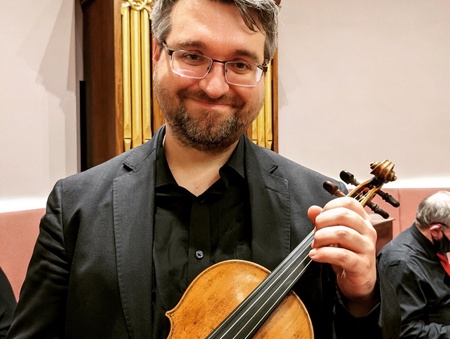This is a past event
Join Dr Aaron McGregor for a research seminar examining Scotland's musical history
Scottish church and burgh records contain a plethora of punishments against musicians and attempts to ban musical activities. In 1560, the Edinburgh burgh council decreed that “vagaboundis fydlaris, and otheris without maisteris” without a house in the city should depart on pain of branding on the cheek. The Scottish Parliament introduced anti-vagrancy laws in 1575-9, declaring all musicians not in the service of the Lords of Parliament, barons or burghs to be “punished as strong beggars and vagabonds”. In 1595, the Church of Scotland drew up a progress of the Reformation, lumping in “pypers” “fidlers” and “songsters” with other “idle persons having no lawfull calllings”.
Whilst music was not considered a deviant activity per se, the common musician (i.e. those without privileged permanent employment) was a marginalised figure in Early Modern Scotland. The literary trope of the common fiddler or piper was one whose ignorance and poverty went together with laziness and immorality. Musicians were focal points for transgressive behaviour and activities, notably “promiscuous dancing” (and accompanied sexual misconduct), drunkenness, and festivities associated with Catholicism or pagan ritual, including feast day celebrations, wedding processions, and lykewakes. The authorities were also keenly aware of music’s power in voicing dissatisfaction with the political and religious hegemony.
This seminar will explore the association between musicians and deviance in Early Modern Scotland, showing the ways in which both regulation and patronage were used to control unwanted attitudes and behaviours. It will also weigh the success of this campaign, looking at the ways in which Scottish music and musicians flourished in this period, despite what might seem an unfavourable environment.
Dr Aaron McGregor is a Lecturer in Music (Performance) at the University of Aberdeen. In 2020, he completed a PhD at the University of Glasgow, focussing on the early history of the violin in Scotland, and uncovering a lost tradition stretching back to the middle of the 16th century. Aaron’s research explores the intersection between classical and traditional music. This has included work on fiddle repertoires, the vernacularisation of Italian concert music, work on national song and dance bands of the 18th and 19th centuries. Aaron’s performance background is similarly diverse, including work with groups such as Scots Baroque, Laudonia, Scottish Ensemble, Scottish Ballet, Dunedin Consort, the Spinacino Consort, RSNO, the GRIT orchestra, Les Musiciens de Saint Julien (France), and the Evergreen Ensemble (Australia). Aaron is a leading exponent of early Scottish fiddle music, performing regularly with Concerto Caledonia, with whom he has made five recordings, given several live performances on BBC Radio 3 and Radio Scotland, and toured Ireland, Finland and Australia. Upcoming projects include a performance at the Wigmore Hall with Siglo de Oro, a British-Council funded tour of France, and a Creative-Scotland funded series of new plays with the Tandem Writing Collective, with whom he is musical director and composer-in-residence.
- Speaker
- Dr Aaron McGregor
- Venue
- MacRobert Building, MR055
- Contact
-
To book a place or request a link to the Microsoft Teams call, please email Dr Christina Ballico.

